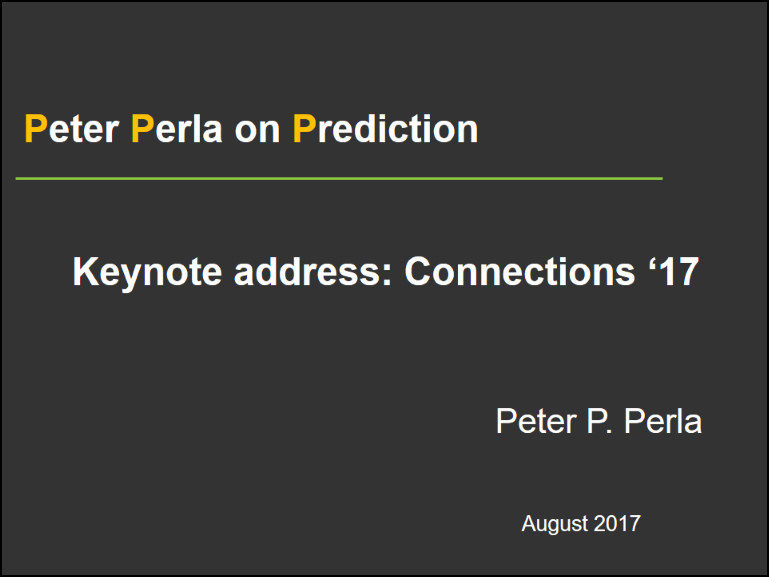 Dr. Peter Perla, noted defense researcher, wargame designer and expert, and author of the seminal The Art of Wargaming: A Guide for Professionals and Hobbyists, gave the keynote address at the 2017 Connections Wargaming Conference last August. The topic of his speech, which served as his valedictory address on the occasion of his retirement from government service, addressed the predictive power of wargaming. In it, Perla recalled a conversation he once had with Trevor Dupuy in the early 1990s:
Dr. Peter Perla, noted defense researcher, wargame designer and expert, and author of the seminal The Art of Wargaming: A Guide for Professionals and Hobbyists, gave the keynote address at the 2017 Connections Wargaming Conference last August. The topic of his speech, which served as his valedictory address on the occasion of his retirement from government service, addressed the predictive power of wargaming. In it, Perla recalled a conversation he once had with Trevor Dupuy in the early 1990s:
Like most good stories, this one has a beginning, a middle, and an end. I have sort of jumped in at the middle. So let’s go back to the beginning.
As it happens, that beginning came during one of the very first Connections. It may even have been the first one. This thread is one of those vivid memories we all have of certain events in life. In my case, it is a short conversation I had with Trevor Dupuy.
I remember the setting well. We were in front of the entrance to the O Club at Maxwell. It was kind of dark, but I can’t recall if it was in the morning before the club opened for our next session, or the evening, before a dinner. Trevor and I were chatting and he said something about wargaming being predictive. I still recall what I said.
“Good grief, Trevor, we can’t even predict the outcome of a Super Bowl game much less that of a battle!” He seemed taken by surprise that I felt that way, and he replied, “Well, if that is true, what are we doing? What’s the point?”
I had my usual stock answers. We wargame to develop insights, to identify issues, and to raise questions. We certainly don’t wargame to predict what will happen in a battle or a war. I was pretty dogmatic in those days. Thank goodness I’m not that way any more!
The question of prediction did not go away, however.
For the rest of Perla’s speech, see here. For a wonderful summary of the entire 2017 Connections Wargaming conference, see here.

Interesting. I may be missing something but I think that if you apply the scientific method by formulating an hypothesis which you then test using an evidence based approach supported by the logic and statistical analysis techniques developed in myriad of scientific experiments then you have a sound way of conducting controlled war-games. This seems fairly close to the MADACAP methodology so it is not wildly unrealistic and the scientific method provides a rigorous well trodden path.
Perla seems, with all due respect, to be making things complicated and vague due to the lack of rigour in his thinking. History is the last discipline to apply the scientific method and so suffers from this lack of rigour as is evident in Perla’s speech. War-gaming, which can be regarded as a subset of historical investigation, seems to have the same problem unless you adopt the tried and proven scientific method.
We make predictions: Trevor Dupuy with the Gulf War, and The Dupuy Institute with Bosnia and Iraq (both are in my book America’s Modern Wars). Enough said.